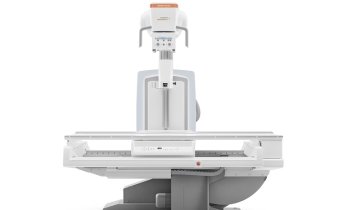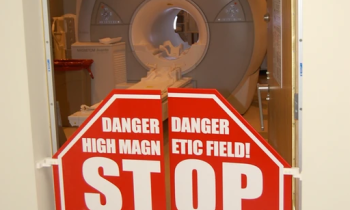The European Commission, DG Information Society and Media
The European Comission was on of the first funding agencies ...

The European Comission was on of the first funding agencies supporting eHealth programms.
What is eHealth and why is it important? Today, in just seconds, eHealth - the tools and services of information and communication technologies in healthcare - provides health professionals access to vital data for patient care and to the latest literature and knowledge. While such systems ultimately aim at reducing administration time and increasing time spent on patient care and continuous education, many deployed systems leave much to be desired. We use the term eHealth to encompass classical medical and health informatics as well as telemedicine, telecare and telehealth. The main idea behind telemedicine systems is to provide access to best quality care for people isolated from care facilities, due to their location or other reasons.
Has eHealth delivered real value? Yes, eHealth can deliver real and proven benefits when accompanied with the right organisational changes and skills. It can improve access to quality of care and even save costs through productivity gains and quality improvements. Several examples of real life solutions are available in E-Health - Current situation and examples of implemented and beneficial E-Health applications (Iakovidis I, Wilson P, Healy JC (Eds.). IOS Press, Vol.100, 2004) and on http://www.ehealth-impact.org/.
What is the role of the European Commission, DG Information Society and Media? The European Commission (EC) was one of the first funding agencies in the world to support this multidisciplinary field. In total, since 1988, about 650 million Euros in EU contributions have been granted to approximately 450 R&D projects in eHealth programmes alone. Many of these research results have now been tested and put actively into practice. (Details: www.cordis.lu/ist/health/index.html). As a result, Europe has a lead in the deployment of Regional Health Networks, Electronic Health Records, Healthcards and services such as e-referral and e-prescription. The market has grown multifold since 1990. However, the deployment of eHealth solutions varies greatly among European countries.
EU eHealth Action plan
In April 2004 the EC adopted the Communication COM (2004) 356 final eHealth - making healthcare better for European citizens: An Action Plan for a European eHealth Area. This describes the main objectives of eHealth, the challenges in wider deployment and proposes specific actions for Member States with the support of the EC. The Action Plan’s main areas:
• National eHealth Roadmaps and Leadership: Each EU Member State is to develop a national and/or regional roadmap for the deployment of eHealth systems. These national roadmaps will be discussed in the next eHealth Ministerial conference 2006 in Malaga Spain (www.ehealthconference2006.org).
• Interoperability of eHealth systems: The connectivity and interoperability of health information systems is a prerequisite for the main added value of eHealth, namely enabling patient centred healthcare, where providers have access to comprehensive and relevant health information stored anywhere in the EU. The need to identify a person unambiguously is an important component of the interoperability of health information systems. The current focus is on necessary technical, semantic and organisational steps in order to provide short and basic summary of an electronic health record on line everywhere in Europe.
• Labelling and Accreditations: To support the development of an eHealth market there is a need to agree on attributes and norms that define good quality systems and services. Exchange of experiences between EU Member States and draft guidelines are expected in 2007. The European Commission supports these activities through Q-REC project (www.eurorec.org).
• Legal and Regulatory Issues: A greater legal certainty with regard to eHealth services (not including cross-border eHealth services) within the context of freedom of movement of people, goods and services is necessary and will be addressed by the Action plan by 2009.
Conclusion
The EC has invested early in this domain and helped the European Union and its stakeholders to become global leaders. The ultimate aim of eHealth is to support the new generation of patient centred health delivery systems. Such future systems connect all the points of care, enable access and sharing of information, and ensure continuity of care from prevention to care and rehabilitation. eHealth has proven benefits but the full potential of eHealth tools and services has not yet been realised due to challenges in wider deployment that are rather organisational, financial and of legal nature.
Since 2004 Europe has its eHealth Action Plan, providing activities to support a coherent implementation of eHealth in Europe over the next five years. To achieve a European wide eHealth area, supporting patient safety and mobility of citizens, is a real and worthwhile challenge.
* Disclaimer: The views developed in this article are those of the author and do not necessarily reflect the position of the EC.
The 4th eHealth High Level Conference
The European Commission describes eHealth as the application of information and communications technologies (ICTs) across the whole range of functions that affect the health sector, from the doctor to hospital manager, via nurses, data processing specialists, social security administrators and - of course - the patients. Since 2003, the EC has supported eHealth High Level Conferences, and the first of these events took place in that year, in Brussels, Belgium. The second conference was held in Cork, Ireland, in 2004. Last year the third venue was Tromso, Norway.
The 4th eHealth High Level Conference - along with an exhibition and two associated events: the European eHealth Industry Forum and the World Panel on Interoperability - will be held in Malaga, Spain, from 10-12 May 2006. The organisers: The Spanish Government, Andalucian Regional Government, the Austrian Presidency of the European Union and the European Commission.
The conference aims to encourage best practices exchange between European policy makers, experts and others involved in eHealth and to present innovative processes and implementations. This year’s focus will be on the role of eHealth in the progress of health policies in European regions, and the need to build seamless information networks across regional and country borders.
As for the earlier events, the conference is reported to be by invitation only. Ministers and other key-players in eHealth are encouraged to attend. See details: www.ehealthconference2006.org
01.03.2006











